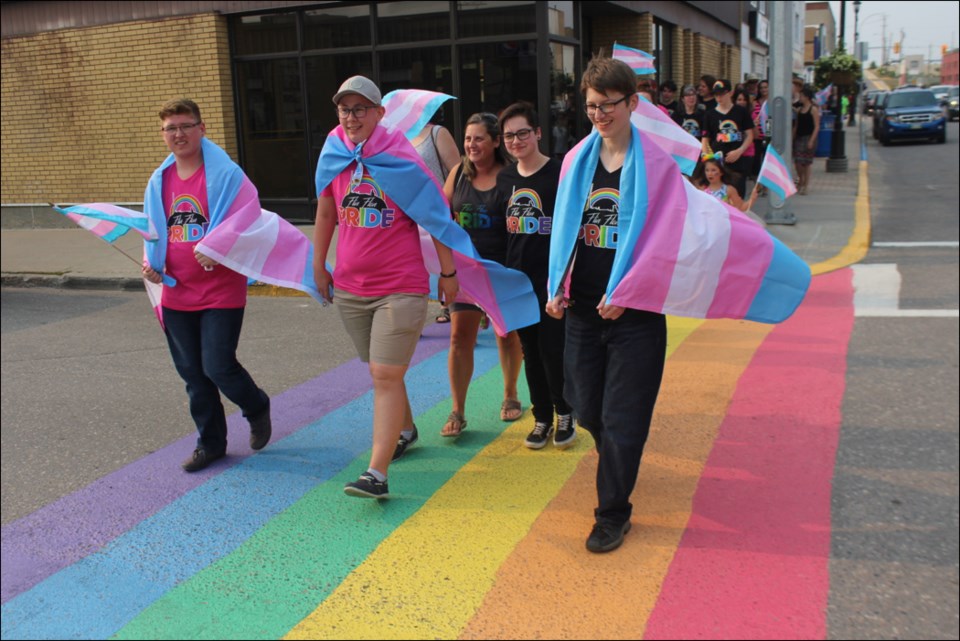Last year, Flin Flon took a big, bold, rainbow step into modern times when it hosted its first ever Pride celebrations.
This year those celebrations returned, and Flin Flon joined the ranks of several other communities across the country with a bright new permanent rainbow crosswalk, in Flin Flon crossing Second Avenue parallel to Main Street.
The Pride committee has kicked it into high gear this year with events galore, a strong social media presence, pop up merchandise sales and a new contingent of committee members. The committee is pushing hard – and, it seems, succeeding – to make Flin Flon a more inclusive place.
Still, committee members have come up against homophobia in a variety of forms as they have been out and about promoting dignity and acceptance in the community, and that means they still have their work cut out for them.
LGBTQ pride is a stance against discrimination toward people who identify as LGBTQ (lesbian, gay, bisexual, transgender, queer or questioning).
It also promotes dignity and equal rights for the LGBTQ community and celebrates diversity.
It sounds great – so why do we need it?
Homosexuality was illegal in Canada up until 1969. Canada has taken steps to become more inclusive and humane, including legalizing gay marriage in 2003, but the country houses a history of discrimination against its LGBTQ community.
Between the 1950s and the early 1990s, federal officials identified and eliminated people who were suspected of identifying as homosexual from the public service. This included public servants, military members, RCMP and intelligence agencies.
Over much of that time, people were convicted of criminal offences for their sexual orientation.
These actions legitimized inequality, hatred and violence against the LGBTQ community.
Prime Minister Justin Trudeau apologized for the government’s actions against LGBTQ people in 2017, but the reality is, the stigma about Canada’s LGBTQ community still exists among Canadians, and it shows up in frightening ways.
Data released by Statistics Canada this year found that for every 1,000 straight Canadians, 69 said they had been the victim of either sexual assault, physical assault or robbery.
That number increases significantly for members of the LGBTQ community – 142 of 1,000 gay and lesbian Canadians and 267 of 1,000 bisexual Canadians report being a victim of the same offences.
For a person to live knowing they have a disproportionately higher chance of becoming an assault victim must be a terrifying feeling, and it’s one that doesn’t belong in a country that boasts being safe, accepting and kind.
Love comes in many different forms, and who a person loves doesn’t make them different from anyone else. It’s time all Canadians recognize and accept this.




